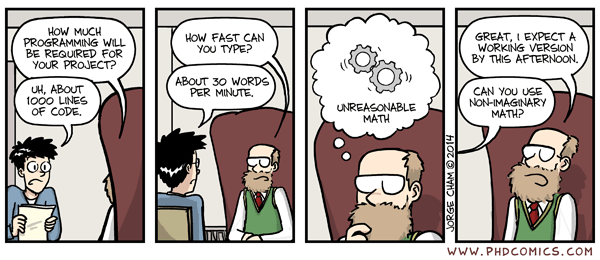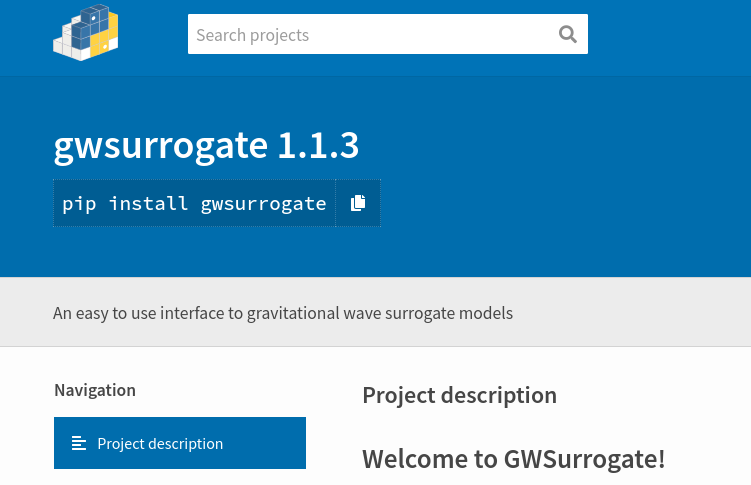
GWSurrogate
GWSurrogate is an easy to use interface to gravitational wave surrogate models built using numerical relativity waveforms.
Surrogates provide a fast and accurate evaluation mechanism for gravitational waveforms which would otherwise be found through solving differential equations.
Github
Pypi

gwModels
gwModels is a Python package for data-driven and phenomenological models for gravitational waveforms and remnant properties.
Github

NRSurCat-1
NRSurCat-1 is a catalog of posterior samples associated with the paper “Analysis of GWTC-3 with fully precessing numerical relativity surrogate models”, Islam et al, 2023. This includes 47 binary black hole gravitational wave events (from 2015-2020, LVK O1-O3) analyzed using the NRSur7dq4 and NRSur7dq4Remnant models.
Github
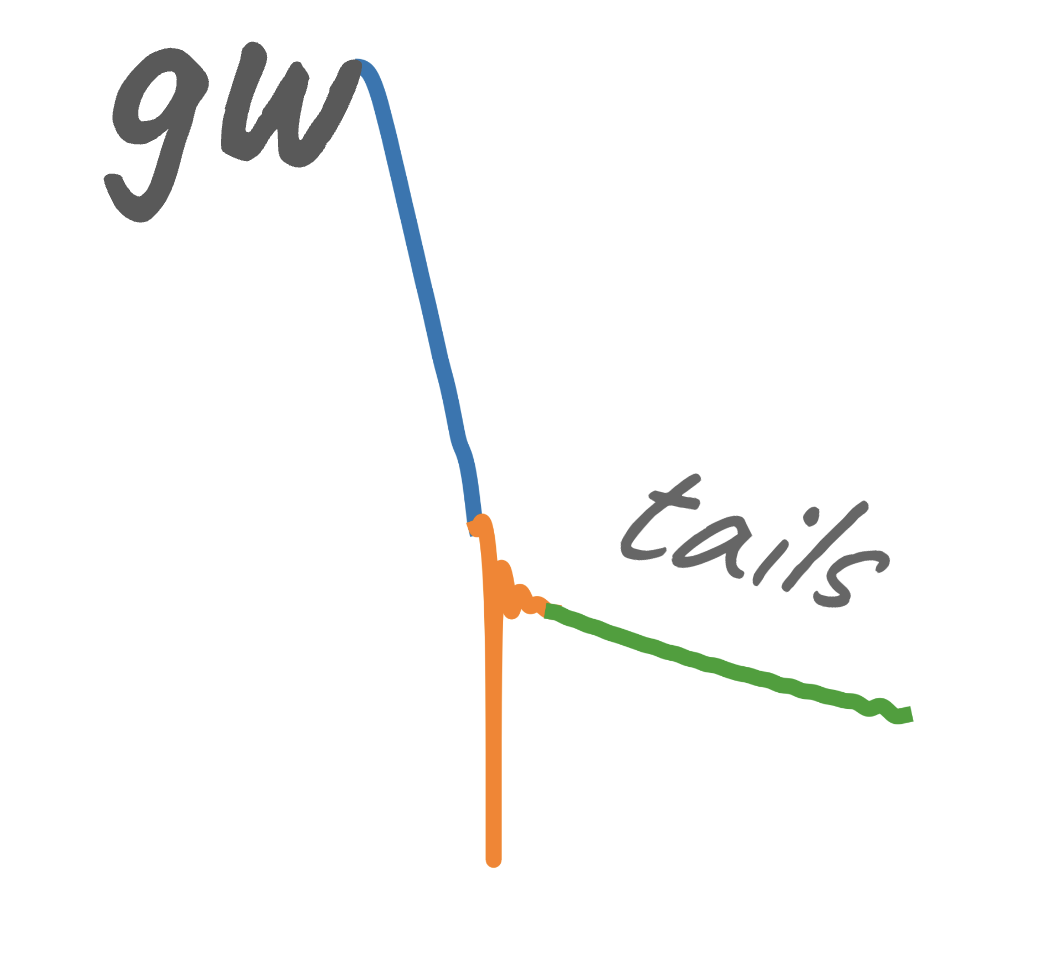
gwtails
gwtails is a Python package to analyze post-merger gravitational waves signal with late-time tails.
Github

EMRISurrogate
EMRISurrogate package provides access to a surrogate gravitational waveform model.
Currently, this package supports one model, EMRISur1dq1e4, for non-spinning black hole binary systems with mass-ratios varying from 3 to 10000. This surrogate model is trained on waveform data generated by point-particle black hole perturbation theory.
Github
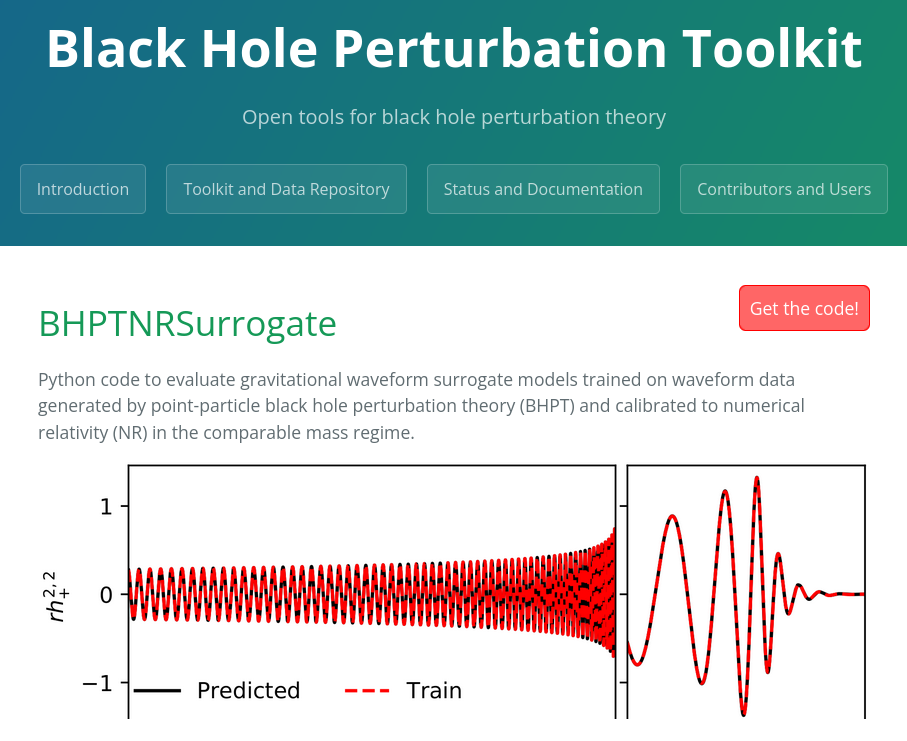
BHPTNRSurrogate
BHPTNRSurrogate package provides access to a family of surrogate gravitational waveform models built on waveforms generated with point-particle black hole perturbation theory (ppBHPT) framework.
These models extend from comparable mass-ratio to large mass-ratio regimes and are tuned to numerical relativity (NR) waveforms at the comprable-mass-ratio regime. Many harmonic modes are included, for example the BHPTNRSur1dq1e4 model includes up to up to l=10.
Website
Github
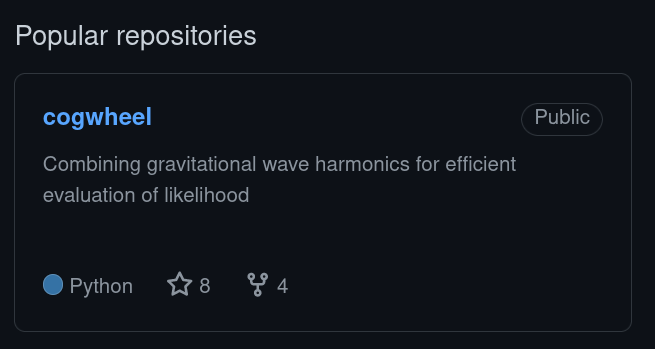
cogwheel
cogwheel is a code for parameter estimation of gravitational wave sources.
It implements a convenient system of coordinates for sampling, a "folding" algorithm to reduce the multimodality of posteriors, and the relative binning algorithm for fast likelihood evaluation (generalized to waveforms with higher modes).
It further supports a rapid parameter estimation framework that is capable of analyzing a binary-black-hole signal in ~200 seconds and a binary-neutron-star signal in ~250 seconds.
Github

gw_remnant
gw_remnant is a code for estimating the remnant properties of binary black hole mergers.
It implements conventional framework to estimate the remnant properties efficiently from the gravitational waveforms. Currently it supports BHPTNRSu1dq1e4 and NRHybSur3dq8 waveform models and NRSurRemnant fits as its default methods. However, it can also take waveforms as inputs.
Github

BHPTNR_Remnant
BHPT_Remnant is an easy-to-use python package to efficiently predict the remnant mass, remnant spin, peak luminosity and the final kick imparted on the remnant black hole directly from the gravitational radiation using GPR fits. These fits have been built on the remnant data calculated from numerical relativity informed black hole perturbation theory based waveforms.
Github

